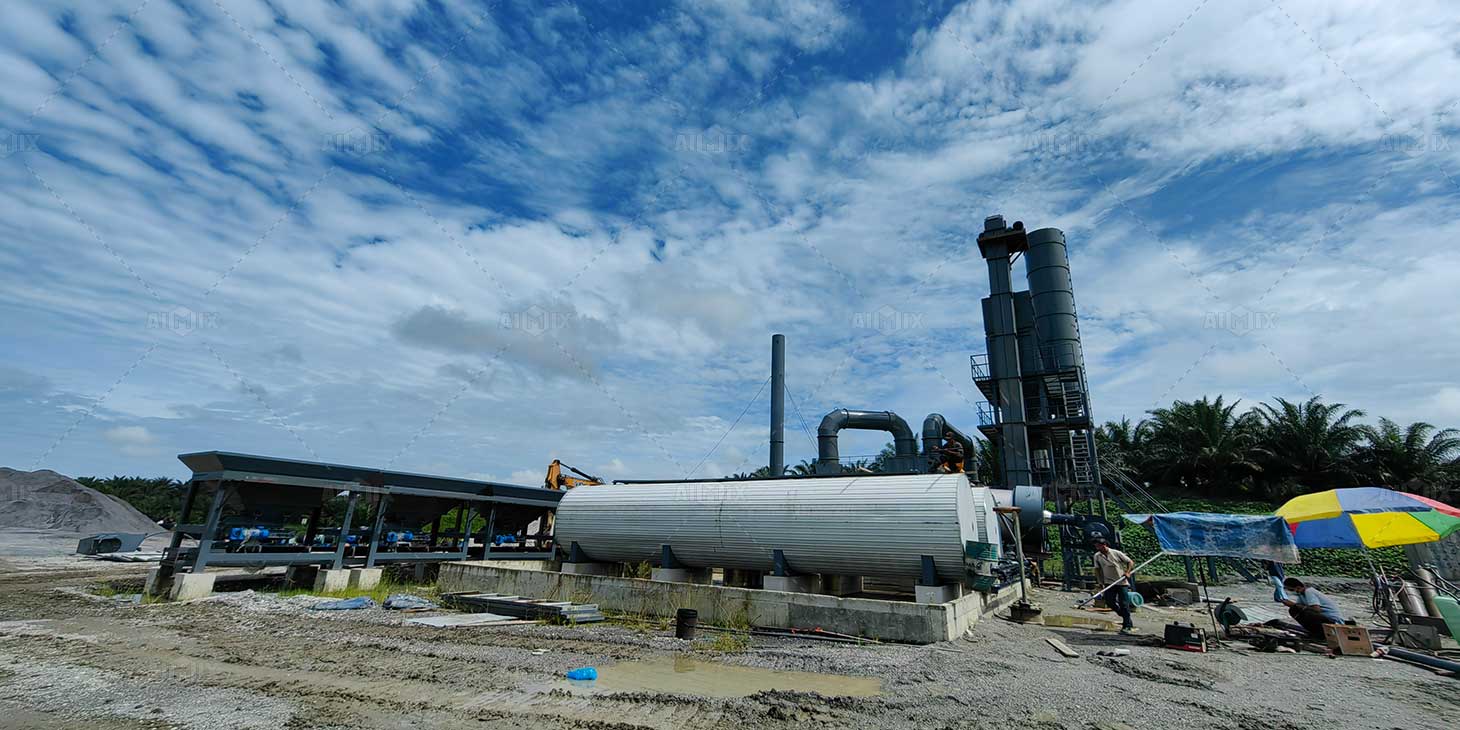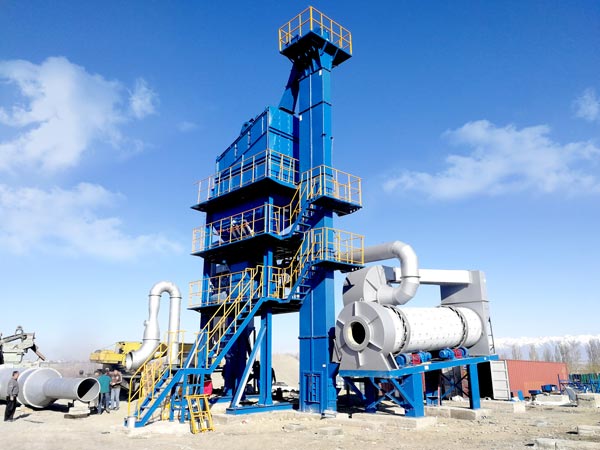An asphalt plant, also known as a hot mix plant or asphalt mixing plant, is a machine used to create asphalt concrete, which is commonly applied for surfacing roads, parking lots, highways, airport runways, and other high-traffic areas.
How Does an Asphalt Plant Operate?
Although there are various types of asphalt plants, they typically consist of these basic components: coal feeder, coal burner, filler supply system, cold aggregate supply system, vibrating system, weighing and mixing system, dust collector, hot aggregate elevation system, bitumen supply system, and, for certain plant types, a drum dryer. Each of these components plays a specific role in producing asphalt concrete for paving.

Depending on the task at hand, the type and texture of asphalt concrete required may vary. Generally, a hot mix asphalt plant for sale heats a combination of aggregates, sand, and filler, such as sand dust, and then incorporates a binder like bitumen to form asphalt concrete.
What Are the Different Types of Asphalt Mixing Plants?
Asphalt plants can be categorized into three main types:
Based on Production Capacity
This classification considers the hourly production capacity of the plant. There are three types under this classification:
- Small portable asphalt plants
- Medium asphalt plants
- Large asphalt plants

Based on Mobility
This classification considers whether the plant can be moved within the construction area. There are three types under this classification:
- Mobile plants
- Semi-stationary plants
- Stationary plants
Based on Mixing Method
There are two main types of asphalt plants under this classification:
- Batch mix plants
- Drum mix plants: https://aimixasphaltplant.com/asphalt-drum-mix-plant/
Batch mix plants create small, precise batches of asphalt before reaching the total amount needed for a construction project. Drum mix plants, on the other hand, produce the required amount for a project through a continuous process, delivering the mixture to the construction site.
Asphalt plants can also be classified based on their environmental features, such as noise mufflers and advanced carbon filters. Moreover, these plants can be categorized by their resource recycling capabilities. For instance, some plants can recycle old asphalt to prevent further environmental harm. Additionally, certain asphalt production plants in AIMIX can reuse gases from the asphalt mix manufacturing process, reducing carbon emissions into the atmosphere.